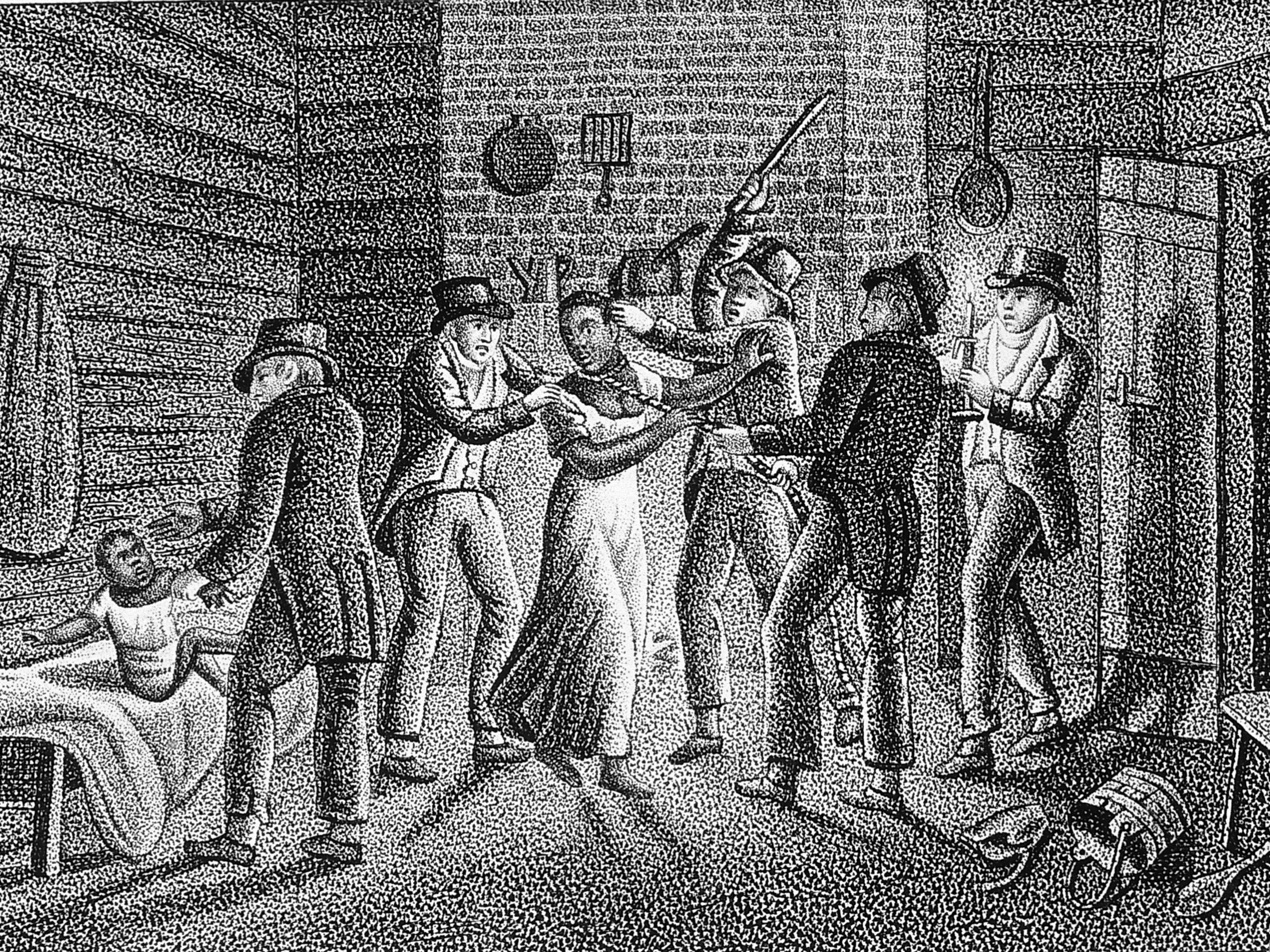About Publications Library Archives
heritagepost.org

Preserving Revolutionary & Civil War History

Preserving Revolutionary & Civil War History

Author: Thomas Jefferson
Date:1779
Annotation: A bill concerning slaves in Virginia.
Document: Be it enacted by the General Assembly, that no persons shall, henceforth, be slaves within this commonwealth, except such as were so on the first day of this present session of Assembly, and the descendants of the females of them.
Negroes and mulattoes which shall hereafter be brought into this commonwealth and kept therein one whole year, together, or so long at different times as shall amount to one year, shall be free. But if they shall not depart the commonwealth within one year thereafter they shall be out of the protection of the laws.
Those which shall come into this commonwealth of their own accord shall be out of the protection of the laws; save only such as being seafaring persons and navigating vessels hither, shall not leave the same while here more than twenty four hours together.
It shall not be lawful for any person to emancipate a slave but by deed executed, proved and recorded as is required by law in the case of a conveyance of goods and chattels, on consideration not deemed valuable in law, or by last will and testament, and with the free consent of such slave, expressed in presence of the court of the county wherein he resides: And if such slave, so emancipated, shall not within one year thereafter, depart the commonwealth, he shall be out of the protection of the laws. All conditions, restrictions and limitations annexed to any act of emancipation shall be void from the time such emancipation is to take place.
If any white woman shall have a child by a negro or mulatto, she and her child shall depart the commonwealth within one year thereafter. If they fail so to do, the woman shall be out of the protection of the laws, and the child shall be bound out by the Aldermen of the county, in like manner as poor orphans are by law directed to be, and within one year after its term of service expired shall depart the commonwealth, or on failure so to do, shall be out of the protection of the laws.
Where any of the persons before described shall be disabled from departing the commonwealth by grievous sickness, the protection of the law shall be continued to him until such disability be removed: And if the county shall in the mean time, incur any expence in taking care of him, as of other county poor, the Aldermen shall be intitled to recover the same from his former master, if he had one, his heirs, executors and administrators.
No negro or mulatto shall be a witness except in pleas of the commonwealth against negroes or mullatoes, or in civil pleas wherein negroes or mulattoes alone shall be parties.
No slave shall go from the tenements of his master, or other person with whom he lives, without a pass, or some letter or token whereby it may appear that he is proceeding by authority from his master, employer, or overseer: If he does, it shall be lawful for any person to apprehend and carry him before a Justice of the Peace, to be by his order punished with stripes, or not, in his discretion.
No slave shall keep any arms whatever, nor pass, unless with written orders from his master or employer, or in his company, with arms from one place to another. Arms in possession of a slave contrary to this prohibition shall be forfeited to him who will seize them.
Riots, Routs, unlawful assemblies, trespasses and seditious speeches by a negro or mullato shall be punished with stripes at the discretion of a Justice of the Peace; and he who will may apprehend and carry him before such Justice.
Source: Founder’s Library